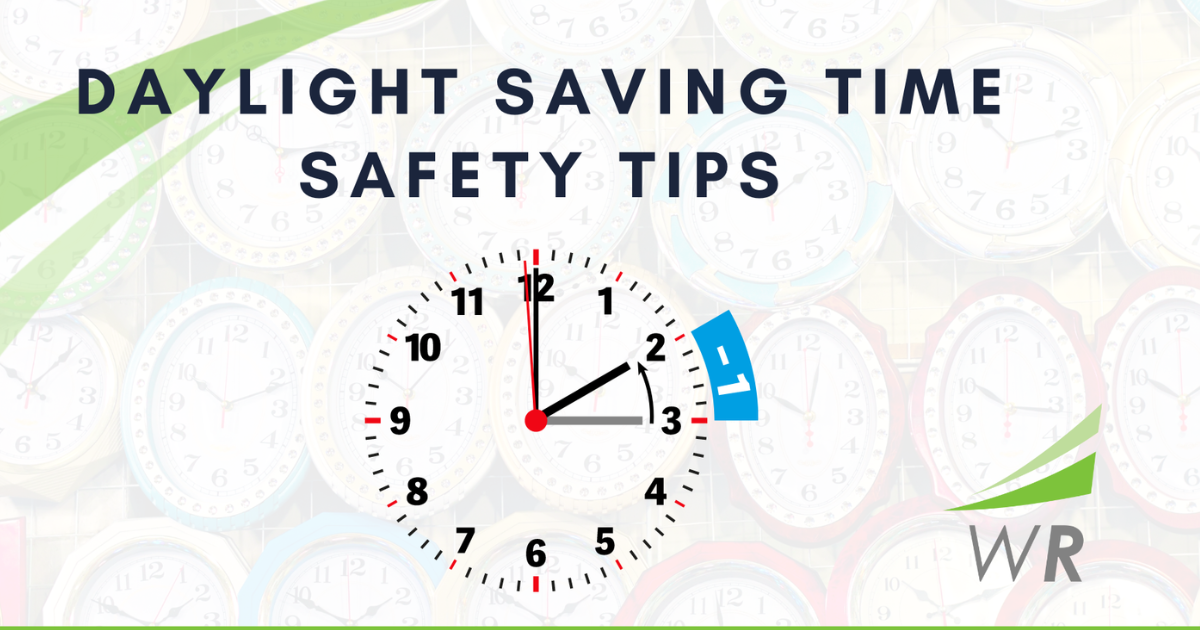Ever notice how one tiny hour can mess up your whole week When daylight saving time hits, most of us just grumble about losing sleep or forgetting to change the clocks. But the truth is… that single hour can impact your focus, driving, mood, and even your safety.
Think about this: studies show accident rates actually go up right after the time change. Why? Because our bodies and brains need time to adjust.
So, let’s talk about some simple, practical daylight saving time safety tips to help you (and your family) stay safe, alert, and stress-free during the transition.
Adjust Your Sleep Early
The biggest shock comes from losing that precious hour of rest. Here’s what helps:
- Start shifting your bedtime 15–20 minutes earlier a few days before the time changes.
- Keep your sleep environment cool, dark, and quiet.
- Avoid caffeine or heavy meals at least 3 hours before bed.
- No doom scrolling, put your phone down 30 minutes before sleeping.
A few nights of good rest before the switch makes a huge difference in how you feel when the clocks jump forward.
Drive Carefully (Especially in the Morning)
Did you know car accidents spike right after daylight saving time starts? It’s not just a myth the combination of drowsiness and darker mornings creates the perfect storm.
Here’s how to stay safe:
- Leave 10–15 minutes earlier to avoid rushing.
- Watch for pedestrians and cyclists, who might be harder to see in dim light.
- Use your headlights even after sunrise for extra visibility.
- If you feel tired, pull over and take a short break.
The goal isn’t just to arrive, it’s to arrive awake and alive.
Check Your Home Safety Devices
Daylight saving time is the perfect reminder to check your safety gear at home:
- Replace batteries in smoke and carbon monoxide detectors.
- Test your home security system and door locks.
- Make sure flashlights and emergency kits are stocked and working.
These few minutes could literally save lives and they’re so easy to forget otherwise.
Watch Your Energy and Mood
That lost hour doesn’t just make you sleepy, it can affect your energy and mood too. Some people feel off-balance or even a little down for a few days.
Try these small resets:
- Get 10–15 minutes of sunlight early in the day. It helps reset your internal clock.
- Moving your body even a short walk helps.
- Eat a balanced breakfast (yes, it actually helps wake your body up).
And remember, it’s temporary. Your body will usually adjust within a week.
Prepare Your Family Especially Kids and Pets
Kids and pets don’t read calendars, so the sudden change can confuse them too.
- Gradually shift bedtime routines a few days early.
- Keep morning routines calm and consistent.
- For pets, adjust feeding and walking times in small steps.
Consistency helps everyone adjust faster (and with fewer cranky mornings).
Review Emergency Plans
Think of daylight saving as your biannual safety check-in. Besides alarms, it’s smart to:
- Review your fire escape plan with your family.
- Check that you have updated emergency contacts saved.
- Make sure first-aid kits and flashlights are accessible.
You’ll thank yourself later if anything unexpected happens.
Be Kind to Yourself
Honestly, it’s normal to feel a bit off after the change. Don’t push yourself too hard the first few days. Go easy, get rest, and try to enjoy the extra daylight in the evenings.
Use that extra sunshine time to:
- Go for a walk after work.
- Sit outside for dinner.
- Catch up with friends.
It’s a small reminder that time changes can bring fresh energy, not just fatigue.
Quick Summary
| Area | What to Do | Why It Matters |
| Sleep | Go to bed earlier, limit caffeine | Prevent fatigue and irritability |
| Driving | Stay alert, use headlights | Fewer accidents in darker mornings |
| Home Safety | Check smoke alarms | Protect your family |
| Mood | Get sunlight, stay active | Reset your body clock |
| Family & Pets | Adjust routines slowly | Smooth transition |
| Emergency Prep | Review safety plans | Stay ready for anything |
FAQs
Q: How long does it take to adjust to daylight saving time
Usually about 3–7 days, depending on your sleep habits and lifestyle.
Q: Why is daylight saving time dangerous
Because the time change disrupts your circadian rhythm leading to drowsiness, poor focus, and more accidents.
Q: Should I change my car’s clock or just use my phone
Change both! It keeps you mindful of the shift, and some older car systems don’t auto-adjust.
Q: Is daylight saving time still needed
Many countries are rethinking it. Some studies show it saves little energy and may cause health issues.
Final Thoughts
Daylight saving time doesn’t have to throw your week off balance. With just a few small changes sleeping earlier, driving safely, and checking your home you can glide through it with ease.
The good news Once you adjust, you’ll have longer evenings to enjoy and maybe that’s worth the effort.
